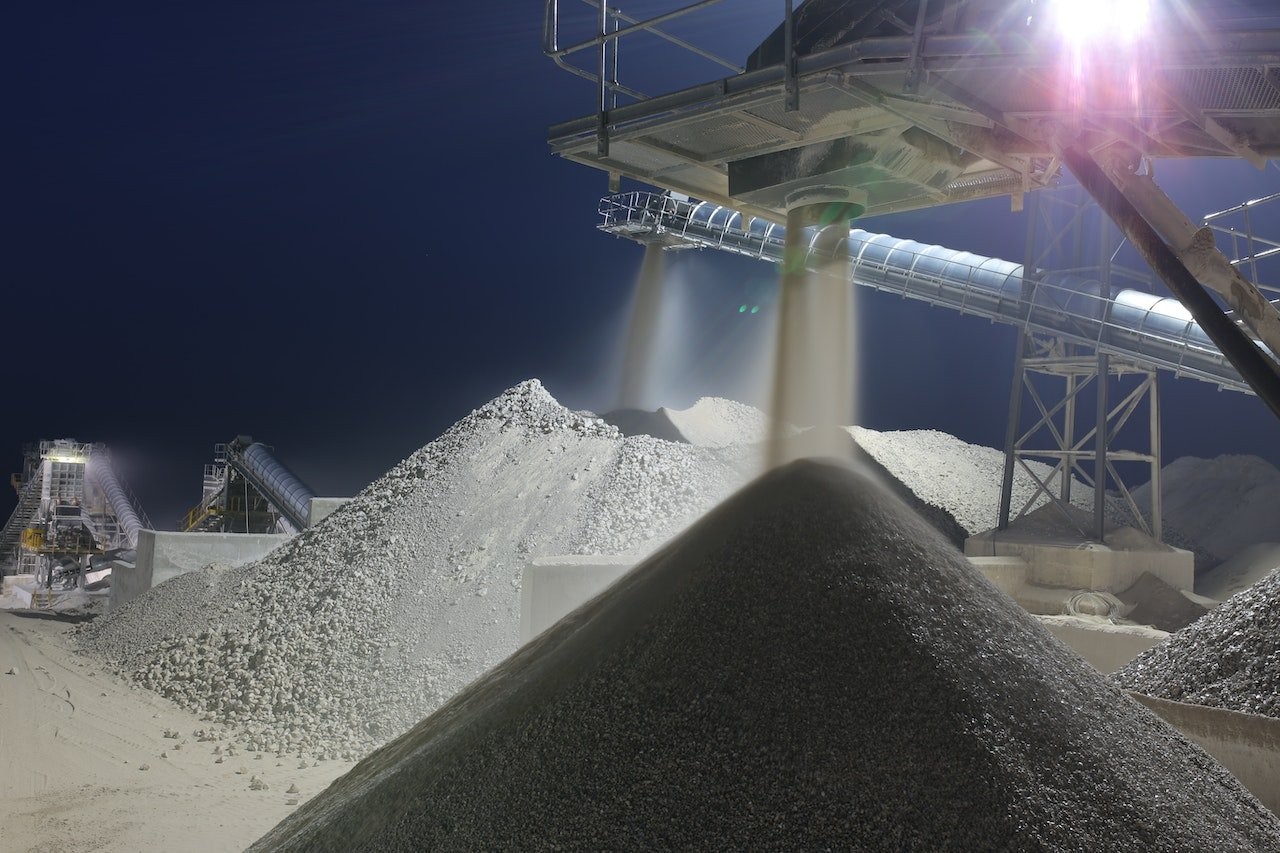Asphalt, a ubiquitous material in construction and maintenance, is a mixture of aggregates and bitumen. At WHAT.EDU.VN, we aim to provide you with clear, concise answers to your questions, offering free information readily available. Dive in to discover more about this versatile substance, its uses, and its long-term benefits, including pavement solutions and road construction techniques.
1. Why Is Asphalt So Popular?
Asphalt is a popular choice for various construction and maintenance applications due to its versatility and numerous benefits. Commonly known as blacktop or tarmac, asphalt provides a smooth, durable, and safe surface for vehicles and pedestrians alike. Its widespread use stems from several key advantages:
- Smooth Surface: Asphalt provides a seamless surface for vehicles, enhancing driving comfort and reducing wear and tear.
- Impact Absorption: It effectively absorbs the impact of traffic, contributing to a smoother and more comfortable ride.
- Weather Resistance: Asphalt withstands various weather conditions, including rain, snow, and extreme heat, ensuring long-lasting performance.
- Recyclability: One of the standout features of asphalt is its ability to be recycled. Old asphalt from roads and parking lots can be repurposed into new asphalt, minimizing waste and conserving valuable resources.
- Easy Maintenance: Maintaining asphalt surfaces is relatively straightforward. Minor cracks and potholes can be repaired quickly, ensuring a safer and more pleasant driving experience.
2. What Is Asphalt Made Of?
Asphalt is primarily composed of two main ingredients: aggregates and bitumen.
- Aggregates: These make up approximately 95% of hot mix asphalt pavement and consist of a mix of crushed stone, gravel, and sand.
- Bitumen: This is a dark, sticky, petroleum-based substance that binds the aggregates together. Bitumen comprises polycyclic hydrocarbons, a byproduct of petroleum refining.
The elemental composition of asphalt includes carbon, hydrogen, sulfur, oxygen, nitrogen, and trace amounts of iron, nickel, and vanadium. These components combine to create a durable and flexible material suitable for various applications, including road surfaces.
3. Common Asphalt Applications
Asphalt is used extensively in various industries and infrastructure projects, each leveraging its unique properties. Here are some of the most common applications:
- Road Construction: Asphalt is widely used for building roads, highways, and freeways. Its durability and smooth surface make it an ideal choice for safe and reliable transportation routes.
- Parking Lots and Driveways: Its ability to withstand vehicle weight and provide a smooth driving surface makes it perfect for constructing parking lots and driveways. Asphalt also boosts curb appeal.
- Airport Runways and Taxiways: Asphalt is used in the construction of airport runways and taxiways due to its capacity to handle heavy aircraft loads. It provides a smooth landing surface and withstands the impact of aircraft tires.
- Bicycle and Pedestrian Paths: Asphalt is often used for constructing bicycle lanes and pedestrian paths, offering a durable surface for active transportation.
- Racetracks: The preferred surface for racetracks, its smoothness and grip characteristics allow for high-speed driving and enhanced safety.
- Roofing: Mastic asphalt is used as a roofing material, especially for flat or low-slope roofs. It provides excellent waterproofing and durability.
- Bridge Decks: Asphalt overlays protect concrete or steel structures from weathering, provide a smooth driving surface, and improve skid resistance.
- Tennis and Basketball Courts: Asphalt is commonly used as a surfacing material for tennis and basketball courts, enhancing ball bounce and player movement.
- Recreational Areas: Used for playgrounds, running tracks, and outdoor sports fields, asphalt offers durability and withstands heavy use.
- Maintenance and Repair: Asphalt is used for patching and repairing damaged sections of roads, parking lots, and other asphalt surfaces, extending the lifespan of existing pavements.
4. Advantages of Using Asphalt for Driveways and Parking Lots
Asphalt offers numerous advantages when used for building driveways and parking lots, making it a preferred material for both residential and commercial properties:
4.1. Durability
When properly installed, asphalt is highly durable and can withstand heavy traffic and vehicle weight for many years without cracking or deteriorating easily, ensuring a long-lasting surface.
4.2. Smooth and Comfortable Surface
Asphalt creates a smooth and even surface for vehicles to drive on. This enhances the driving experience by reducing bumps and vibrations, providing a more comfortable ride.
4.3. Quick Installation
Asphalt can be laid down relatively quickly compared to other materials like concrete. This means less disruption and inconvenience during construction, allowing you to start using your parking lot or driveway sooner.
4.4. Cost-Effectiveness
Asphalt is often a cost-effective choice for parking lots and driveways. Its installation costs are typically lower than other options, and its durability means lower maintenance and repair expenses over time.
4.5. Safety
The dark color of asphalt helps melt ice and snow faster than other materials, making it safer during winter months. Additionally, asphalt offers good skid resistance, reducing the risk of accidents caused by slippery surfaces.
4.6. Flexibility
Asphalt is a flexible material that can adapt to slight ground movements and temperature fluctuations. This flexibility helps prevent cracking and damage, ensuring a longer lifespan for your parking lot or driveway.
4.7. Easy Maintenance
Routine maintenance of asphalt surfaces is relatively simple. Regular sealcoating and filling small cracks can help extend the life of the pavement and minimize the need for major repairs.
5. Asphalt Manufacturing Process
Asphalt is produced through a meticulous process that involves combining aggregates with bitumen. Here’s an overview of the steps involved:
- Aggregate Selection: High-quality aggregates are chosen based on size, shape, and composition.
- Drying: Aggregates are dried in a rotating drum to remove moisture.
- Bitumen Heating: The bitumen binder is heated to reduce its viscosity, making it easier to mix.
- Mixing: Heated aggregates and bitumen are combined in an asphalt mixing plant.
- Additive Introduction: Additives may be introduced to enhance durability and flexibility.
- Quality Control: Samples are tested to ensure the mixture meets specifications.
- Storage: The mixture is stored in heated silos to maintain its temperature.
- Transportation: Specialized trucks deliver the hot mixture to the construction site.
- Placement: At the site, the mixture is spread and compacted using heavy machinery.
6. Asphalt Types
There are several types of asphalt, each designed for specific applications:
6.1. Hot Mix Asphalt Concrete
Produced under high heat, it is the most durable type, ideal for high-traffic areas like highways and airport runways. The hot mix asphalt combines aggregates with bitumen.
6.2. Warm Mix Asphalt Concrete
Manufactured at lower temperatures using emulsions, waxes, and zeolites, it is environmentally friendly and used in low-traffic areas or for patching. While safer for the environment, warm mix asphalt might not offer the same level of durability.
6.3. Mastic
This specialized form is known for high durability and waterproofing, commonly used in road construction and roofing due to its lower bitumen content.
7. Asphalt Quality Control and Testing
Quality control and testing are crucial for ensuring the performance and longevity of asphalt pavements. These measures help:
- Achieve consistent mix design.
- Comply with specifications.
- Ensure material quality.
- Predict pavement performance.
- Prevent failures.
- Ensure proper construction practices.
Ultimately, these processes save costs over the lifespan of the pavement by ensuring it meets the necessary standards.
8. Asphalt Sustainability
Asphalt is a highly sustainable material, recognized as one of the most recycled materials in the construction industry. Recycling old asphalt reduces the need for new materials, conserving resources and minimizing waste. Energy-efficient technologies also optimize production, lowering energy consumption and greenhouse gas emissions.
9. Asphalt Durability
Asphalt’s durability can vary depending on factors like moisture, temperature, traffic volume, and chemical exposure. The use of a sealcoat is essential for proper maintenance. Sealcoating protects asphalt ingredients from eroding due to heavy traffic and exposure to the elements.
10. Effective Asphalt Maintenance Strategies
Maintaining asphalt is crucial for extending its lifespan and ensuring its continued performance. Here are some effective maintenance strategies:
10.1. Crack Filling
Regular inspection and filling of cracks are essential. Unrepaired fissures can lead to deterioration. Cold liquid pour asphalt crack fill is effective for sealing cracks up to ½” wide, while hot pour crackfill works on cracks up to 1” wide.
10.2. Sealcoating
Driveways should be sealcoated every two to three years to prevent oxidation and cracking. Asphalt emulsion sealer protects the bitumen from becoming brittle and cracking.
11. Frequently Asked Questions About Asphalt
To provide you with a comprehensive understanding of asphalt, here are some frequently asked questions:
| Question | Answer |
|---|---|
| 1. What is the difference between asphalt and blacktop? | The terms “asphalt” and “blacktop” are often used interchangeably to refer to a mixture of aggregates and bitumen. |
| 2. Is asphalt better than concrete? | It depends on the application. Asphalt is more flexible and better for colder climates, while concrete is stronger and more durable for heavy-duty applications. |
| 3. What are the benefits of driveway sealcoating? | Sealcoating protects against oxidation, UV rays, and water damage, extending lifespan and enhancing appearance. |
| 4. What is the average asphalt driveway cost? | Asphalt driveway installation can cost between $2 to $30 per square foot, depending on size, location, and labor costs. |
| 5. How many years before asphalt needs repaving? | Asphalt pavement can last around 15 to 20 years with proper maintenance, including sealcoating and crack filling. |
| 6. Is sealcoating really worth the cost? | Yes, sealcoating is a cost-effective measure that protects the asphalt surface, extends its lifespan, and enhances its appearance. |
| 7. What can I use to fill asphalt cracks? | Products like hot pour rubberized crack filler and liquid crack sealant are designed for asphalt cracks, ensuring proper adhesion and durability. |
| 8. What is pothole patching? | Pothole patching repairs potholes using hot mix or cold mix asphalt patch. |
| 9. What is the best product to fill potholes? | The best product depends on the pothole size and weather conditions. Hot mix asphalt is for large potholes, while cold mix asphalt is for temporary repairs. |
| 10. Why is parking lot striping important? | Parking lot striping provides clear traffic patterns, defines parking spaces, ensures safety, enhances aesthetics, and complies with regulations. |
| 11. Common mistakes in asphalt maintenance? | Common mistakes include neglecting sealcoating, not addressing cracks promptly, and poor drainage. |
| 12. How often to apply asphalt sealer? | It’s recommended to apply asphalt sealer every 2 to 3 years, depending on climate and usage. |




12. Learn More with a Free Asphalt Course
To further your understanding of asphalt and its maintenance, take Asphalt Kingdom’s free AKPRO 4-day Email Asphalt Maintenance Course. This course provides everything you need to protect your asphalt investment.
13. Starting Your Own Asphalt Business
For those interested in venturing into the asphalt business, there are resources available to help you get started.
Understanding what asphalt is, its applications, and maintenance is crucial for homeowners, contractors, and anyone involved in construction and infrastructure projects. Remember, maintaining your asphalt surfaces can significantly extend their lifespan and ensure safety.
Have more questions about asphalt or other construction materials? At WHAT.EDU.VN, we provide free answers to all your queries. Don’t hesitate to reach out and get the information you need! Visit our website at what.edu.vn, contact us via WhatsApp at +1 (206) 555-7890, or stop by our office at 888 Question City Plaza, Seattle, WA 98101, United States. We’re here to help you find the answers you’re looking for quickly and easily.
